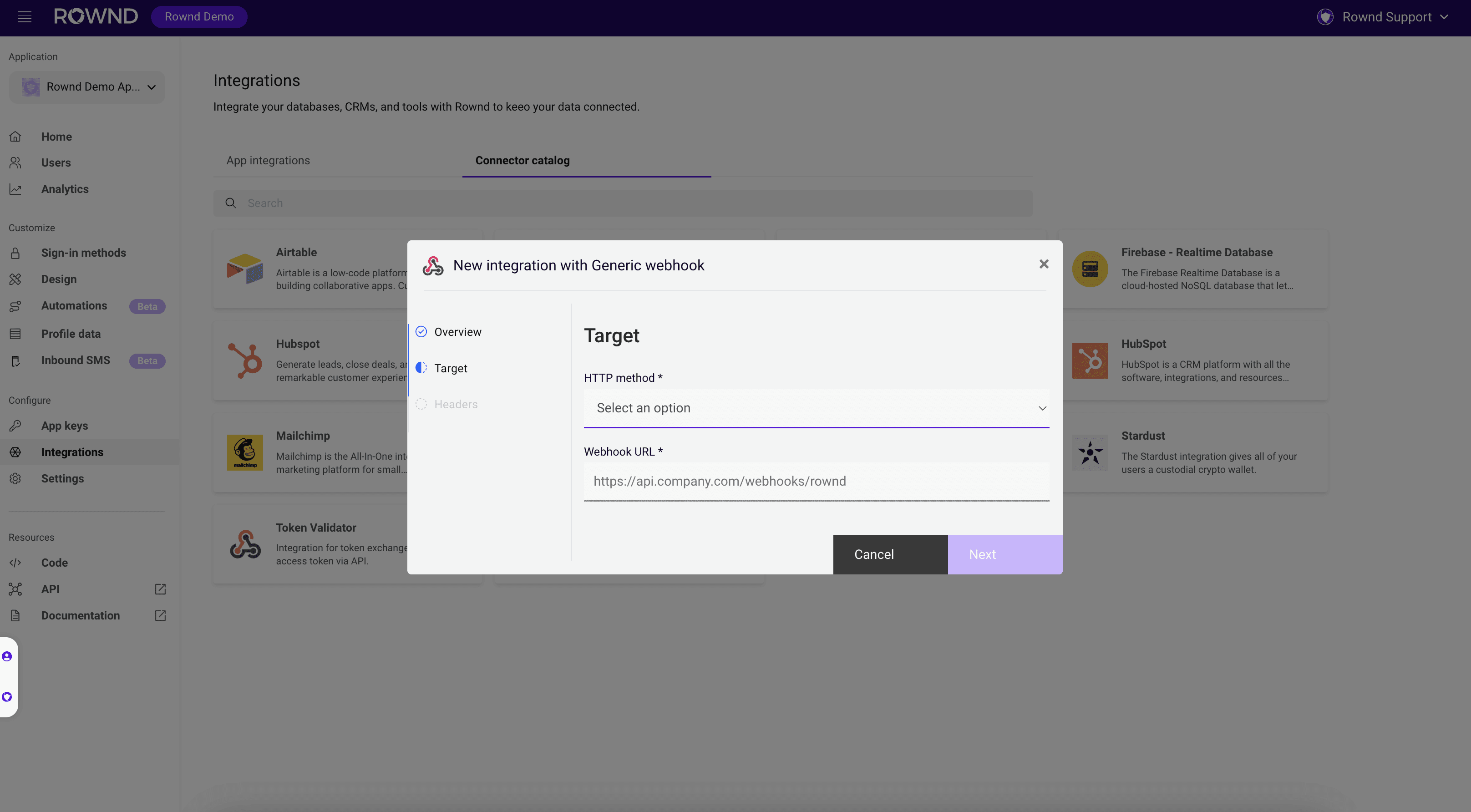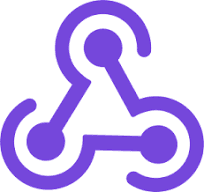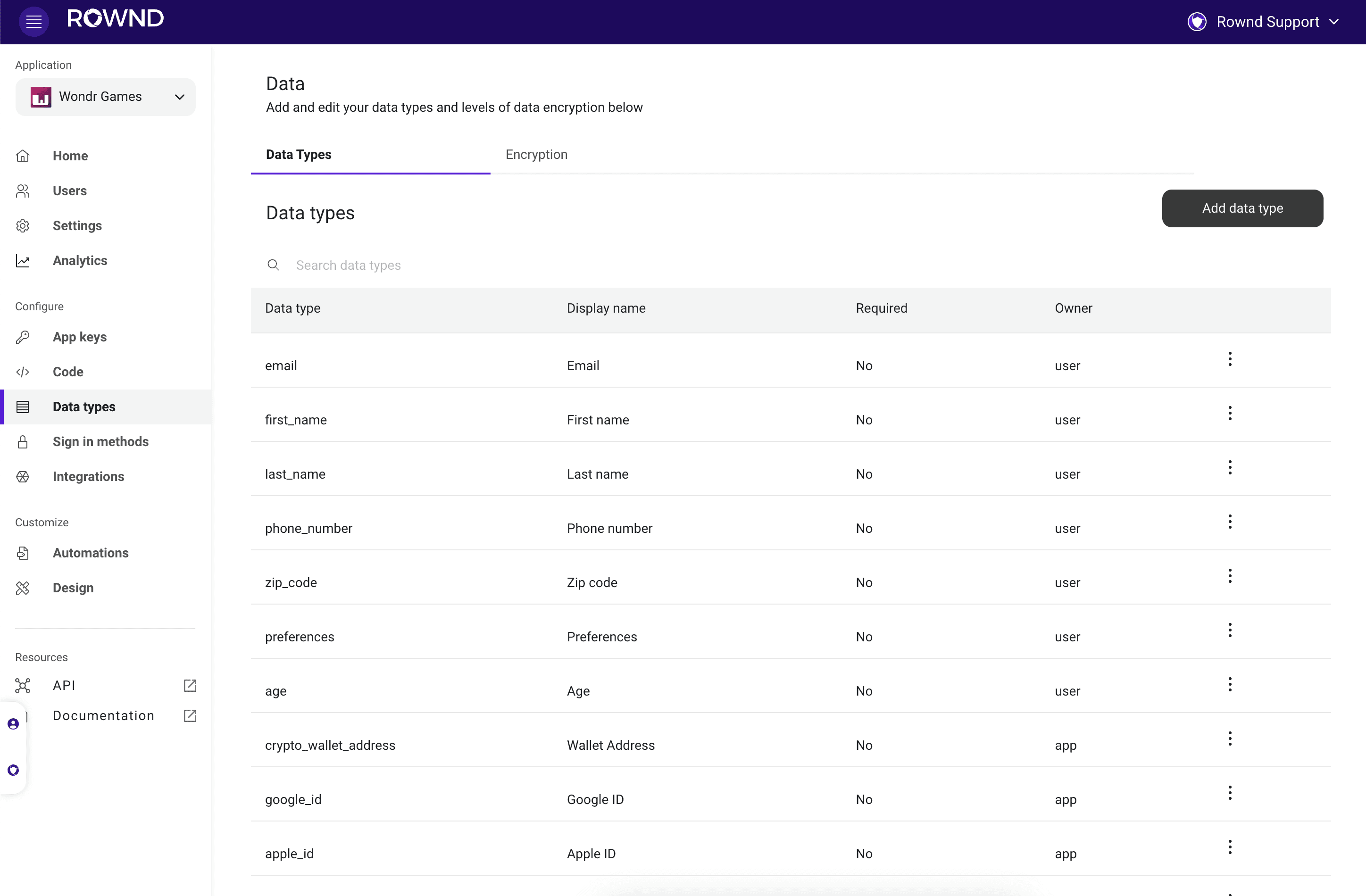Supercharge Your Application with Rownd Webhooks
Rownd’s Webhooks integration offers a powerful tool for developers looking to automate and enhance these interactions based on user data changes. Here’s how you can leverage Rownd Webhooks to bring real-time updates to your application.
Mar 13, 2024

Racheal
As modern applications evolve, seamless and dynamic interactions between services are crucial. Rownd’s Webhooks integration offers a powerful tool for developers looking to automate and enhance these interactions based on user data changes. Here’s how you can leverage Rownd Webhooks to bring real-time updates to your application.
What are Webhooks?
Webhooks are user-defined HTTP callbacks that are triggered by specific events in a system. When used with Rownd, they allow your application to react immediately to changes such as user updates, data creation, or deletions. This capability is crucial for maintaining a responsive and integrated system architecture.

Setting Up Rownd Webhooks
Integrating Rownd Webhooks involves a few straightforward steps:
Configure through the Rownd Dashboard: Easily set up your endpoints through Rownd’s intuitive dashboard.
Select Events: Choose the data changes that will trigger the webhook, ensuring your system only reacts to relevant updates.
Handle Payloads: Receive detailed information about the change, including the type of operation and the data affected.
Custom Headers: Rownd can send API keys, secrets, and other data in the webhook headers
Benefits of Using Rownd Webhooks
Real-Time Data Sync: Keep your systems in sync with the latest user data without polling the database.
Customized Responses: Tailor how your application responds to data changes at a granular level.
Increased Efficiency: Reduce the load on your servers by handling data only when changes occur.
For developers looking to implement sophisticated, event-driven architectures, Rownd’s Webhooks provide a robust solution. Detailed setup instructions and further information can be found in the Rownd documentation on Webhooks.



